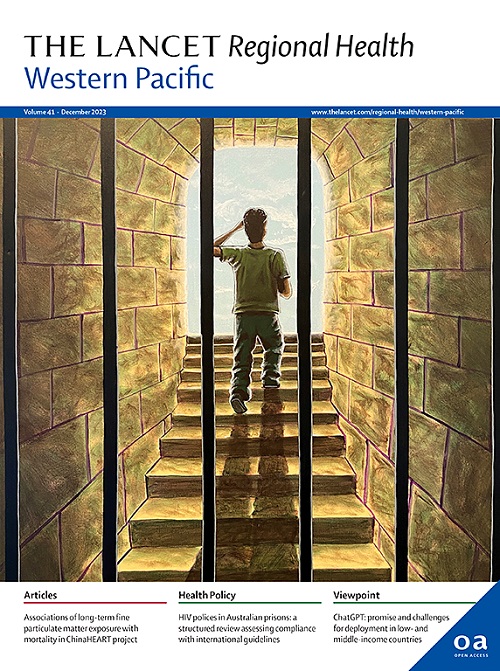Prevalence of germline BRCA1/2 pathogenic variants in unselected Korean patients with HER2-negative metastatic breast cancer: a nationwide prospective study (KCSG BR19-10)
IF 8.1
1区 医学
Q1 HEALTH CARE SCIENCES & SERVICES
引用次数: 0
Abstract
Background
Assessment of germline (g) BRCA1/2 status is recommended for all patients with HER2-negative metastatic breast cancer (MBC) to identify candidates for poly(ADP-ribose) polymerase (PARP) inhibitor therapy, which is not always possible in clinical practice due to limited testing resources. In this study, we investigate the cross-sectional prevalence of gBRCA1/2 pathogenic variant (PV) carriers in unselected Korean patients with HER2-negative MBC.
Methods
Patients diagnosed with HER2-negative metastatic BC receiving palliative systemic treatment were eligible for inclusion in the study. Peripheral blood was prospectively drawn from each patient and gBRCA1/2 status was assessed by next-generation sequencing using an NGeneBio BRCAaccuTest.
Findings
A total of 586 patients were enrolled between October 2019 and March 2022, and the prevalence of gBRCA1/2 PV was analyzed in 570 patients. The median age at enrollment was 54 years (interquartile range, 48–61) and 567 patients were female. Among the 570 patients with gBRCA1/2 analysis, 481 had hormone receptor–positive/HER2-negative breast cancer (BC) and 89 had triple-negative breast cancer (TNBC). The overall prevalence of gBRCA1/2 PV carriers was 7.4% (42/570, 95% confidence interval (CI) 5.4%–9.8%) in unselected patients with HER2-negative MBC [gBRCA1, 1.8% (95% CI 0.8%–3.2%), 10/570; gBRCA2, 5.6%(95% CI % - 7.8%), 32/570]. The overall prevalence of gBRCA1/2 PV carriers in Korean patients with HER2-negative MBC and a low risk of hereditary breast ovarian cancer syndrome (HBOC) was 5.7% [19/332, 95% confidence interval 3.5%–8.8%; TNBC 10.5% (95% CI 1.3%–33.1%), 2/19; HR-positive/HER2-negative 5.4%(95% CI 3.2%–8.6%), 17/313].
Interpretation
Our study measured the size of the current underestimation of gBRCA1/2 PV carriers in unselected Korean patients with HER2-negative MBC, particularly in patients without high risk factors for HBOC. An active screening strategy for unselected HER2-negative MBC should be pursued to avoid missing potential candidates for systemic treatment with PARP inhibitors.
Funding
Pfizer.
在未选择的韩国her2阴性转移性乳腺癌患者中,种系BRCA1/2致病变异的患病率:一项全国性的前瞻性研究(KCSG BR19-10)
背景:对于所有her2阴性转移性乳腺癌(MBC)患者,推荐进行种系(g) BRCA1/2状态评估,以确定多(adp -核糖)聚合酶(PARP)抑制剂治疗的候选人,但由于测试资源有限,在临床实践中并不总是可能的。在这项研究中,我们调查了未选择的韩国her2阴性MBC患者中gBRCA1/2致病变异(PV)携带者的横断面患病率。方法诊断为her2阴性的转移性BC接受姑息性全身治疗的患者符合纳入研究的条件。前瞻性地从每位患者中抽取外周血,并使用NGeneBio brcaaccuest通过下一代测序评估gBRCA1/2状态。在2019年10月至2022年3月期间,共有586名患者入组,并对570名患者的gBRCA1/2 PV患病率进行了分析。入组时的中位年龄为54岁(四分位数范围48-61岁),567名患者为女性。在570例进行gBRCA1/2分析的患者中,481例为激素受体阳性/ her2阴性乳腺癌(BC), 89例为三阴性乳腺癌(TNBC)。在未选择的her2阴性MBC患者中,gBRCA1/2 PV携带者的总体患病率为7.4%(42/570,95%可信区间(CI) 5.4%-9.8%) [gBRCA1, 1.8% (95% CI 0.8%-3.2%), 10/570;gBRCA2, 5.6%(95% CI % - 7.8%), 32/570]。韩国her2阴性MBC和低风险遗传性乳腺癌综合征(HBOC)患者中gBRCA1/2 PV携带者的总体患病率为5.7%[19/332,95%置信区间为3.5%-8.8%;TNBC 10.5% (95% ci 1.3%-33.1%), 2/19;hr阳性/ her2阴性5.4%(95% CI 3.2%-8.6%), 17/313]。我们的研究测量了目前未选择的韩国her2阴性MBC患者中gBRCA1/2 PV携带者的低估程度,特别是在没有HBOC高风险因素的患者中。对于未选择的her2阴性MBC应采取积极筛查策略,以避免错过潜在的PARP抑制剂全身治疗候选药物。
本文章由计算机程序翻译,如有差异,请以英文原文为准。
求助全文
约1分钟内获得全文
求助全文
来源期刊

The Lancet Regional Health: Western Pacific
Medicine-Pediatrics, Perinatology and Child Health
CiteScore
8.80
自引率
2.80%
发文量
305
审稿时长
11 weeks
期刊介绍:
The Lancet Regional Health – Western Pacific, a gold open access journal, is an integral part of The Lancet's global initiative advocating for healthcare quality and access worldwide. It aims to advance clinical practice and health policy in the Western Pacific region, contributing to enhanced health outcomes. The journal publishes high-quality original research shedding light on clinical practice and health policy in the region. It also includes reviews, commentaries, and opinion pieces covering diverse regional health topics, such as infectious diseases, non-communicable diseases, child and adolescent health, maternal and reproductive health, aging health, mental health, the health workforce and systems, and health policy.
 求助内容:
求助内容: 应助结果提醒方式:
应助结果提醒方式:


